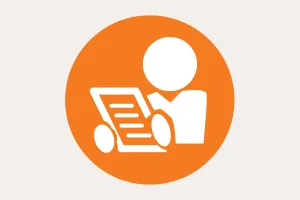Reporting accessibility problems with this website
If you find any problems not listed on this page or think we are not meeting the accessibility requirements, email us at phso.enquiries@ombudsman.org.uk
Enforcement procedure
The Equality and Human Rights Commission (EHRC) is responsible for enforcing the Public Sector Bodies (Websites and Mobile Applications) (No. 2) Accessibility Regulations 2018 (the ‘accessibility regulations’).
If you complain to us about an accessibility problem and you’re not happy with how we respond, contact the Equality Advisory and Support Service (EASS).
Technical information about this website’s accessibility
The Parliamentary and Health Service Ombudsman is committed to making its website accessible, in accordance with the Public Sector Bodies (Websites and Mobile Applications) (No. 2) Accessibility Regulations 2018.
Compliance status
Our website partially meets the Web Content Accessibility Guidelines (WCAG) version 2.1 AA Standard. We are currently working to fix known issues to fully meet the AA standard and renew our Disability Accessibility Centre (DAC) accreditation.
Non-accessible content
The content listed below is non-accessible for the reasons stated.
- Some documents are in PDF format and are not accessible in a number of ways, such as having incorrect document structures, labels or alternative texts. Non-HTML documents published on or after 23 September 2018 must have an accessible format.
- Some video controls do not have enough contrast. This fails WCAG 2.1 AA success criterion 1.4.11 (non-text contrast). This is an issue with the YouTube video player and not within the control of the Parliamentary and Health Service Ombudsman.
- Some video controls have a tooltip which does not stay open when moving the cursor to them. This fails WCAG 2.1 AA success criterion 1.4.13 (content on hover or focus). This is an issue with the YouTube video player and not within the control of Parliamentary and Health Service Ombudsman.
Content not within the scope of the accessibility regulations
Some of our non-HTML documents were published before September 2018. The regulations state they do not need to be accessible, unless users need them to use our service.
These are mainly:
- historical investigation reports that are of public interest
- historical copies of our annual report and accounts.
We are not planning to replace these documents with accessible formats. However, you can request these in alternative formats using the contact details above.
What we’re doing to improve accessibility
- We are working through making all PDFs published after 23 September 2018 fully accessible. We are also replacing PDFs with HTML webpages where feasible.
- We are working with the Digital Accessibility Centre to fix any outstanding accessibility issues.
We will regularly review this statement and update this page when issues are fixed.
Preparation of this accessibility statement
This statement was first prepared on 31 January 2017. It was last reviewed on 6 August 2021.
This website was last tested on 9 September 2020 by the Digital Accessibility Centre.
Our approach to testing was to identify a representative sample of pages by:
- using analytics to understand the most commonly used pages on our website
- using our insight to identify the pages most vital for accessing our services, such as pages providing information about how to bring a complaint to us
- including most of the common page templates used on our website.
The website was also tested on 27 April 2021 by the Central Digital and Data Office (part of the Cabinet Office) as part of its role in monitoring the adherence to the accessibility regulations. This resulted in further improvements being made to the accessibility of this website.




